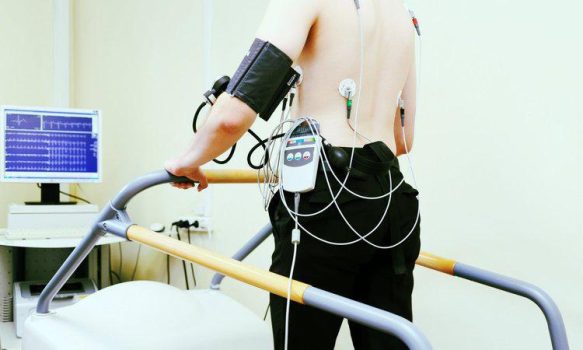What is it?
A nuclear stress test is a diagnostic test which helps diagnose various heart conditions. Similar to an exercise stress test, a nuclear stress test measures your heart’s activity while at rest as well as while stressed. However, unlike an exercise stress test which only takes ECG readings, a nuclear stress test produces both ECG readings as well as images of the heart, at rest and while exercising.
A nuclear stress test, like other stress tests, take up to 3-4 hours due to its tedious nature. However, it produces clear images and accurate readings of the heart’s activity, allowing the doctor to identify discrepancies much easily.
How is it done?
A nuclear stress test involves a series of steps. It starts with the patient receiving an injection of a small dose of safe radioactive substance, upon which a special medical camera is used to create images of blood flow throughout the heart. The radioactive substance, when absorbed by the heart and blood vessels, makes them clearer in the images created. The nuclear stress test also takes into consideration your ECG readings as well. Both the readings, as well as the images, will be taken while at rest as well as during simple treadmill exercises. If you are unable to physically exert yourself, you will be given medication that increases your heart rate and mimics the state of being “stressed”.
In order to prepare for the nuclear stress test, you will be asked to follow several steps including:
- Avoid eating and drinking few hours before the test
- Avoid caffeine products at least 24 hours before the test
- Avoid smoking and drinking in the days leading up to the test
- Wear loose-fitting, comfortable clothes
Once the test is successfully completed, you will be allowed to return to daily activities unless stated otherwise. You will need to stay hydrated post-procedure so as to flush out the radioactive substance from your system. Some may even experience headaches post-procedure, which should go away in a short while.
Why is it done?
A nuclear stress test can help doctors identify and diagnose several heart conditions, including:
- Coronary artery disease
- Acute coronary syndrome
- Bundle branch block
- Congestive heart failure





